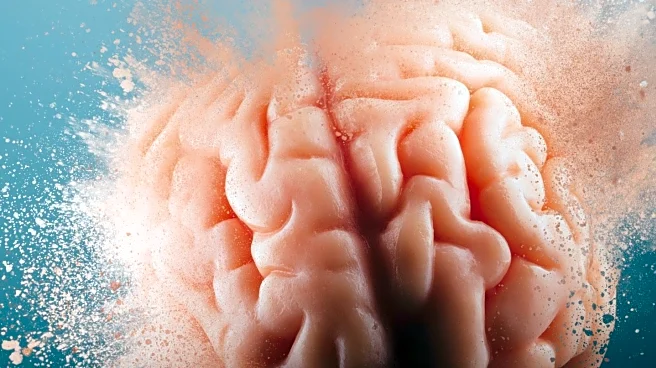What's Happening?
A recent study published in Neuropsychologia has found that children exposed to trauma exhibit subtle changes in brain activity, even in the absence of behavioral symptoms. The research focused on typically developing children aged 9 to 15 and examined
how trauma affects brain regions involved in executive function, such as the anterior cingulate cortex and prefrontal cortex. The study revealed that children with higher trauma exposure showed distinct patterns of brain activity during tasks requiring sustained attention and inhibition, with variations observed between sexes.
Why It's Important?
This study highlights the potential long-term impact of trauma on brain development in children, emphasizing the need for early identification and intervention. Understanding how trauma affects brain function can inform strategies to support affected children and prevent future mental health issues. The findings also underscore the importance of considering sex differences in trauma research, as boys and girls may experience different neural responses to trauma. This research could lead to more tailored approaches in addressing the needs of trauma-exposed children.
What's Next?
Future research is needed to explore the long-term effects of trauma on brain development and to determine whether the observed changes persist into adulthood. Longitudinal studies could provide insights into the relationship between early trauma exposure and later mental health outcomes. Additionally, integrating clinical assessments and broader measures of trauma could help clarify the specific types of trauma that most significantly impact brain function. This knowledge could guide the development of targeted interventions to support children at risk.















